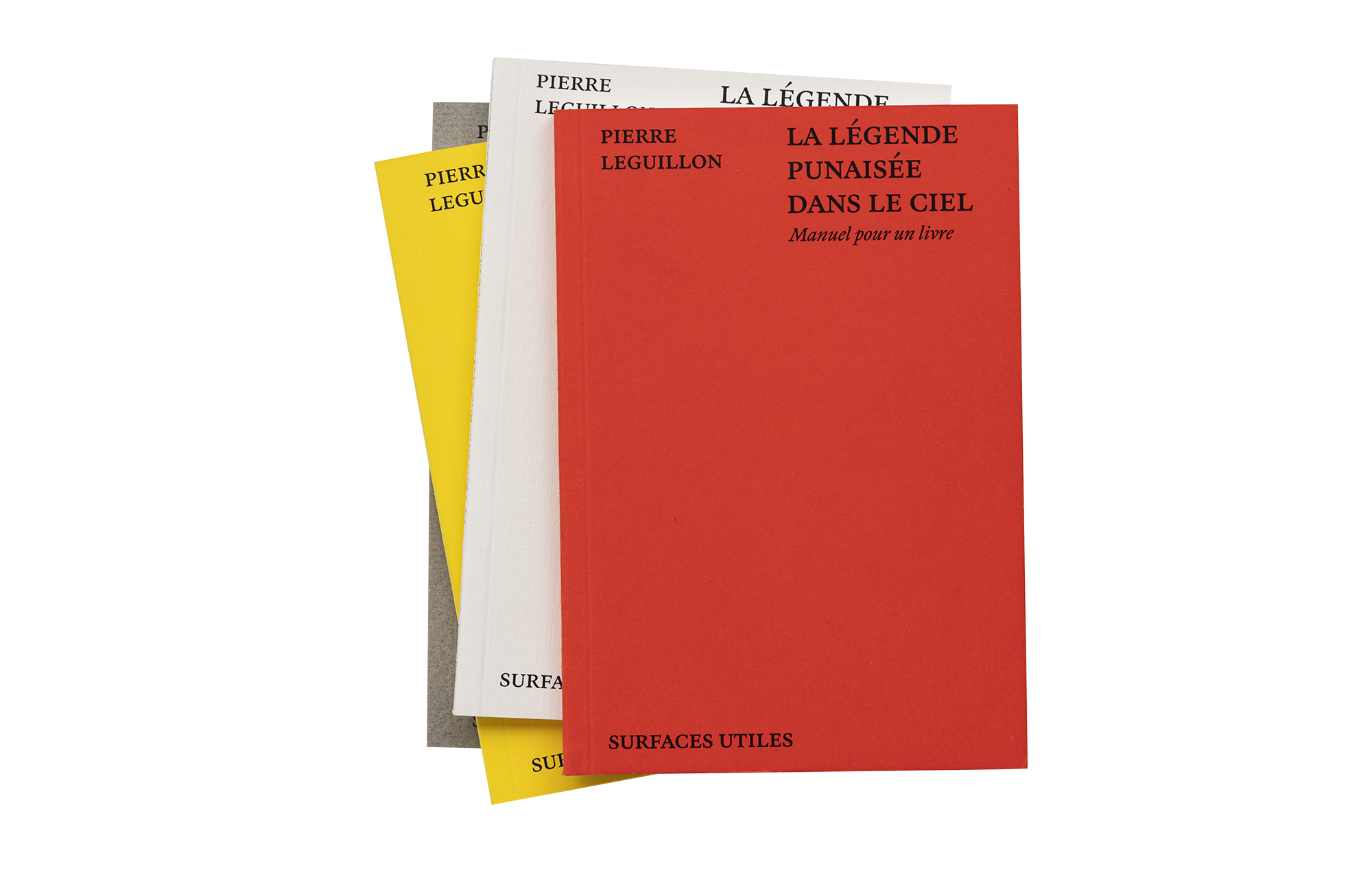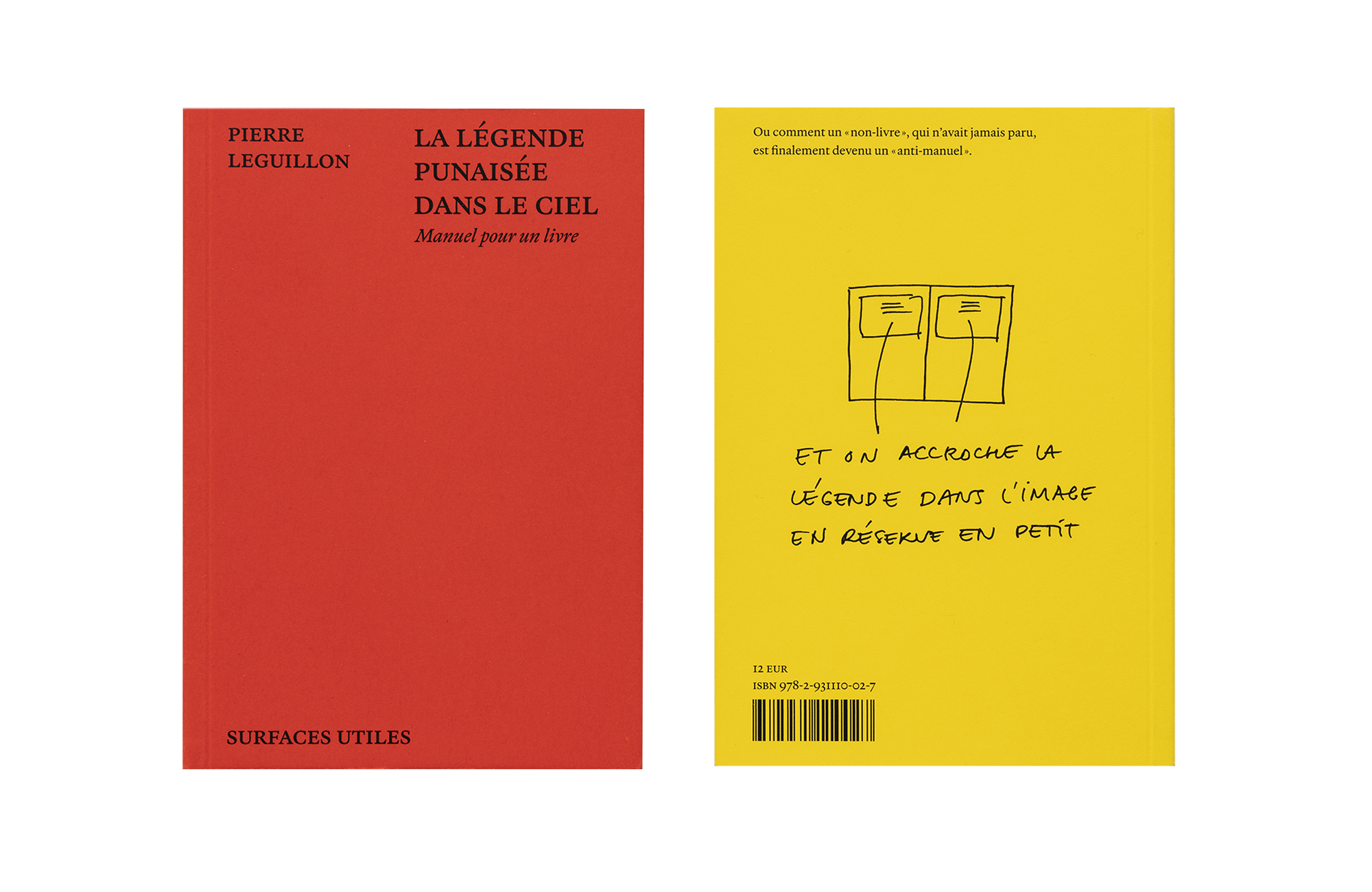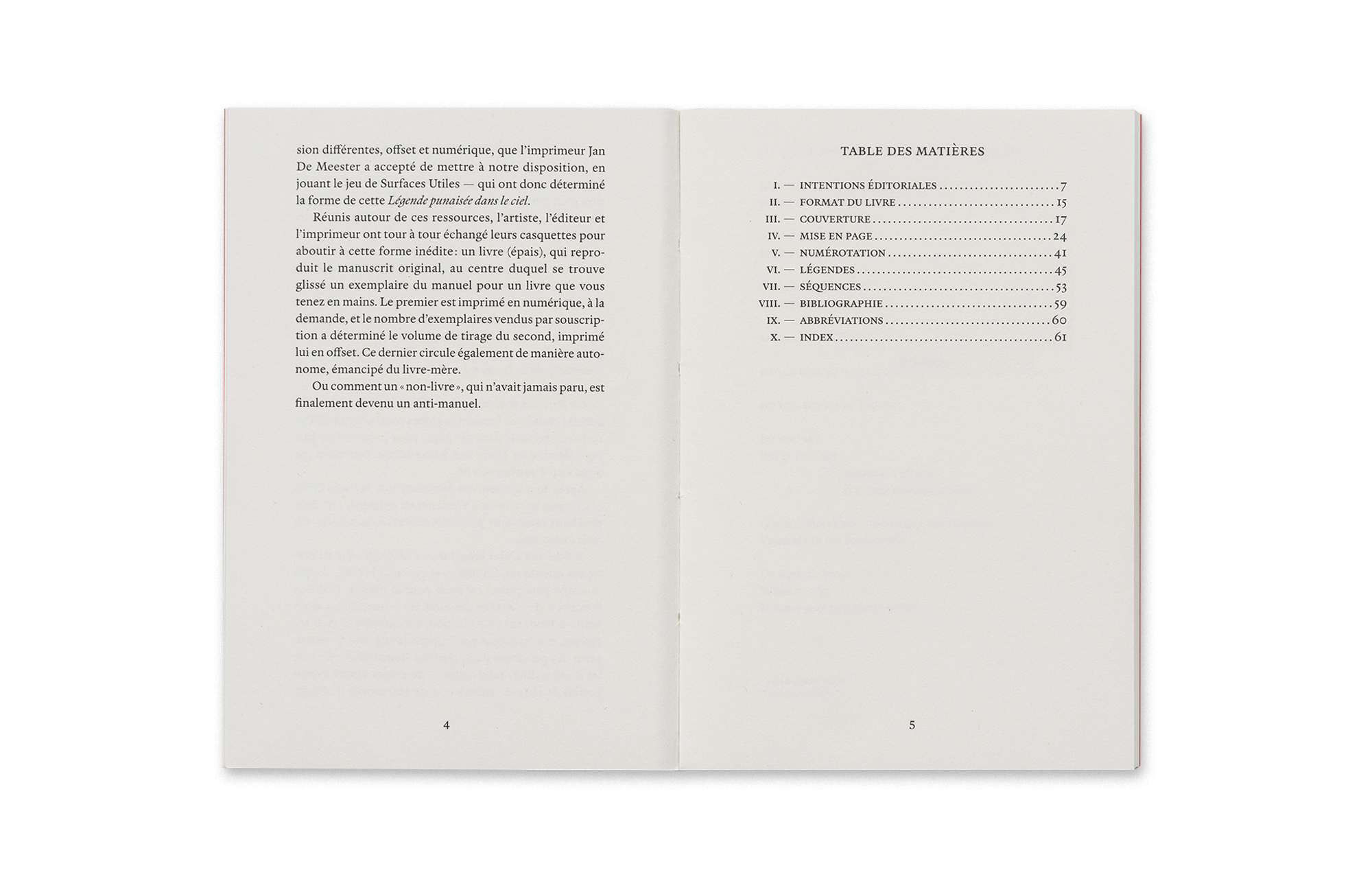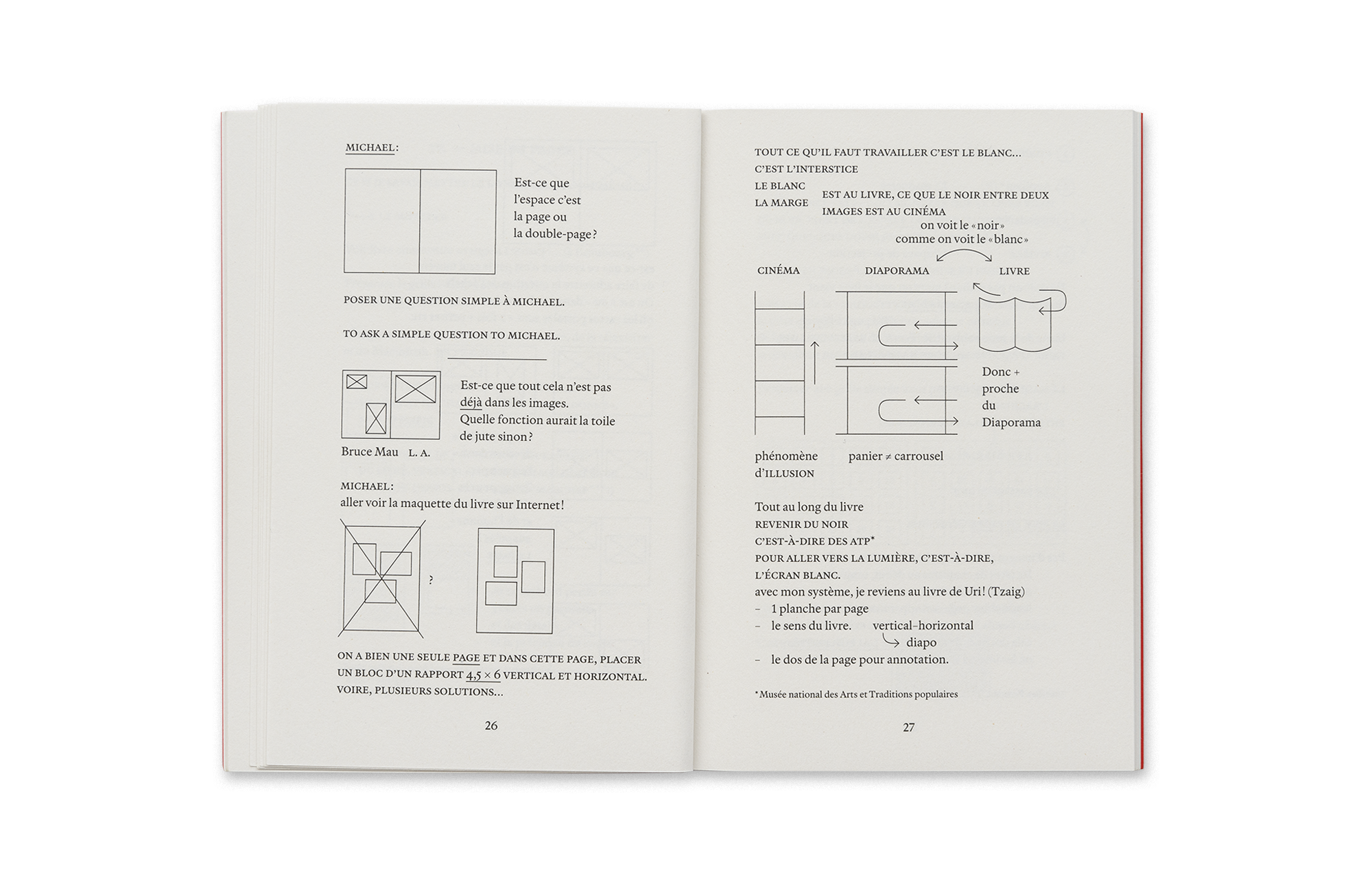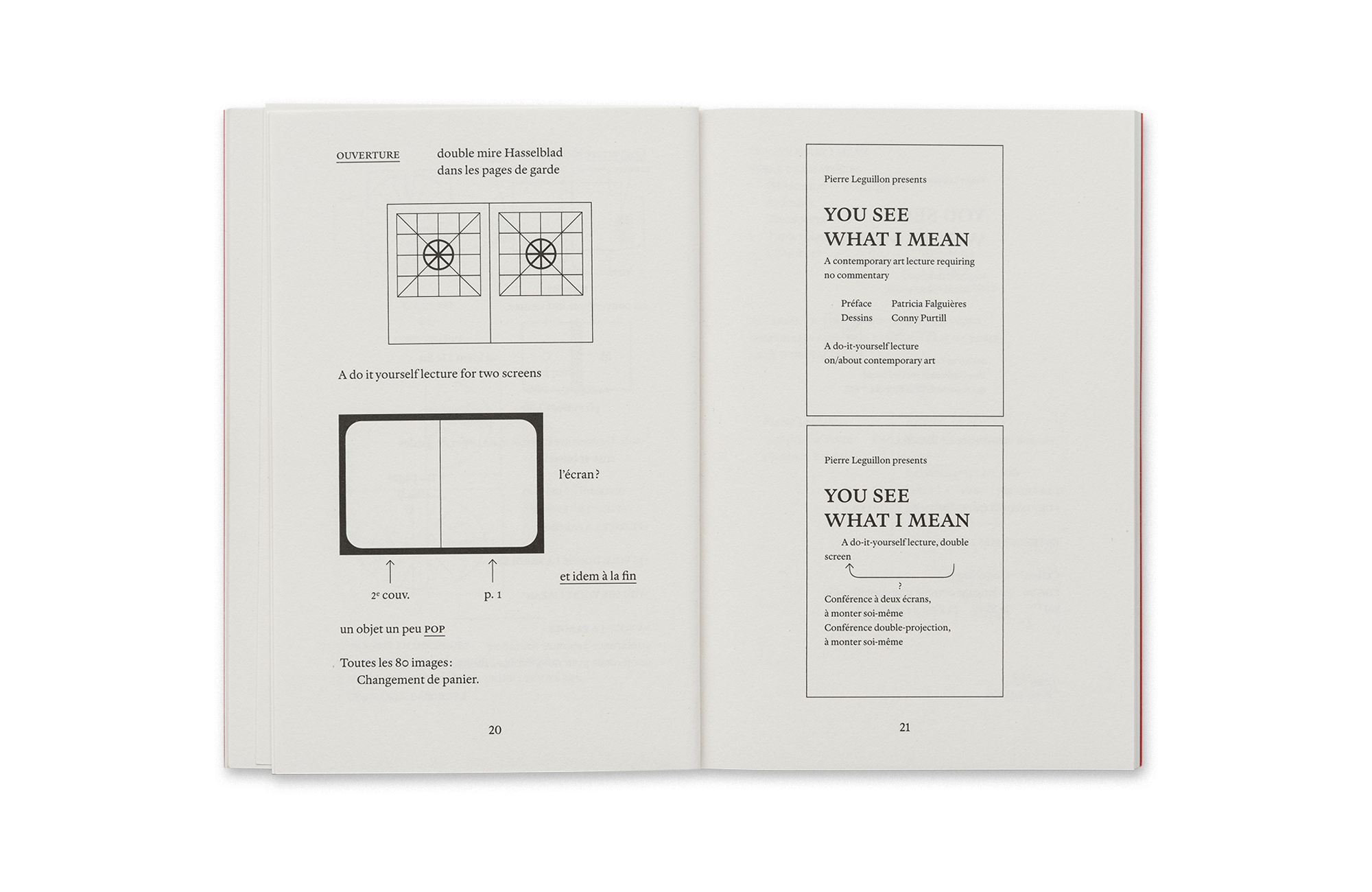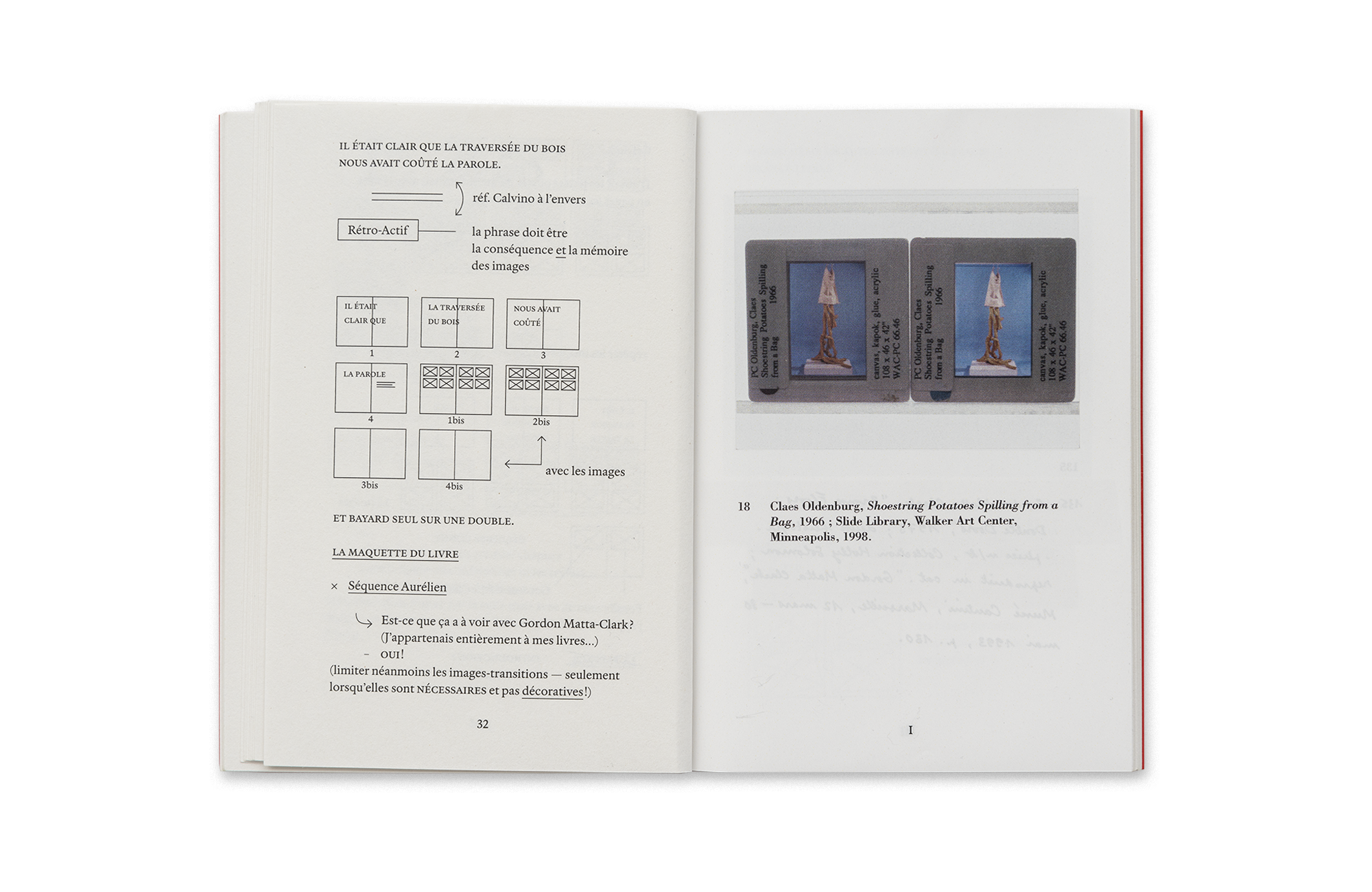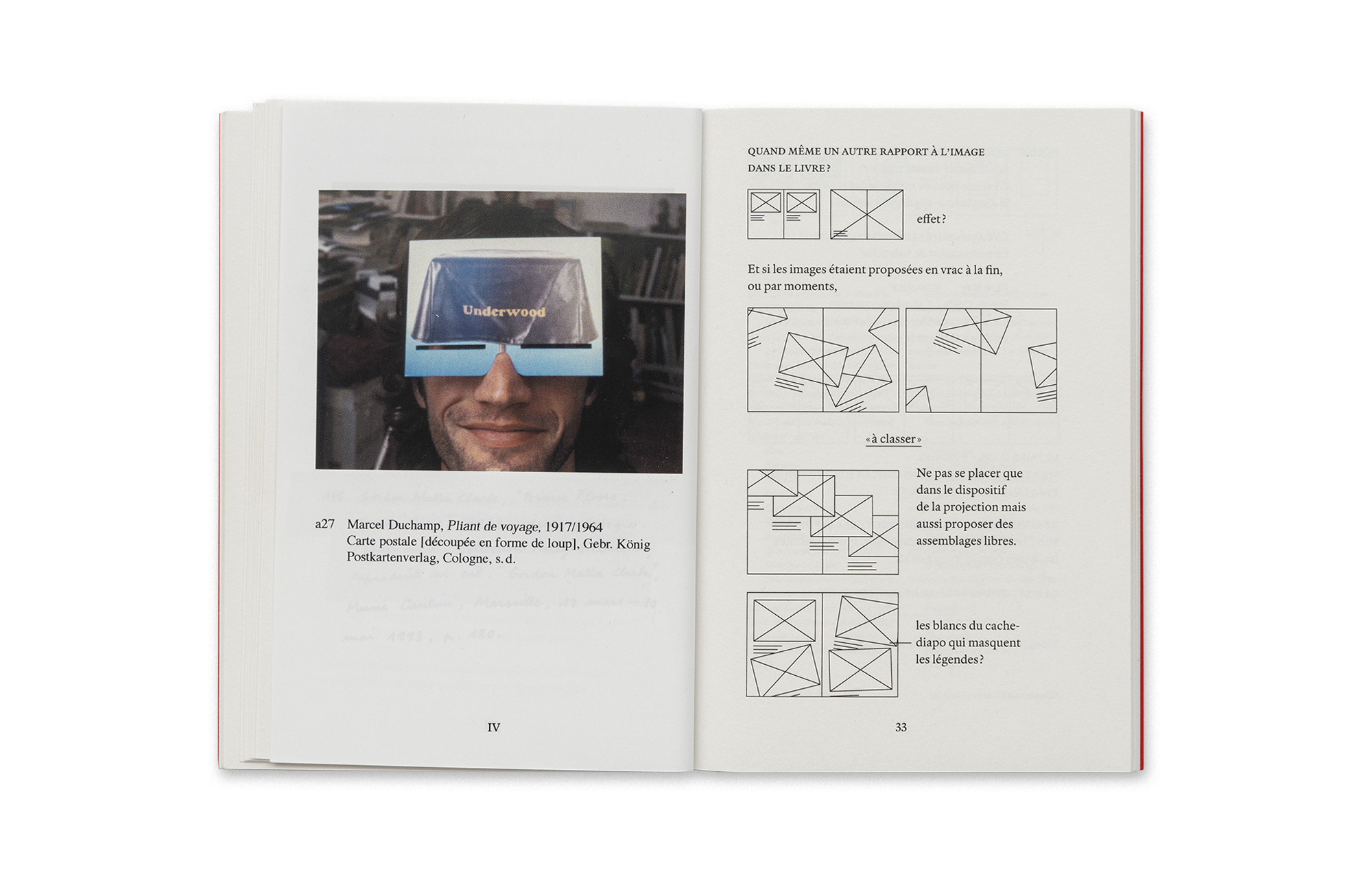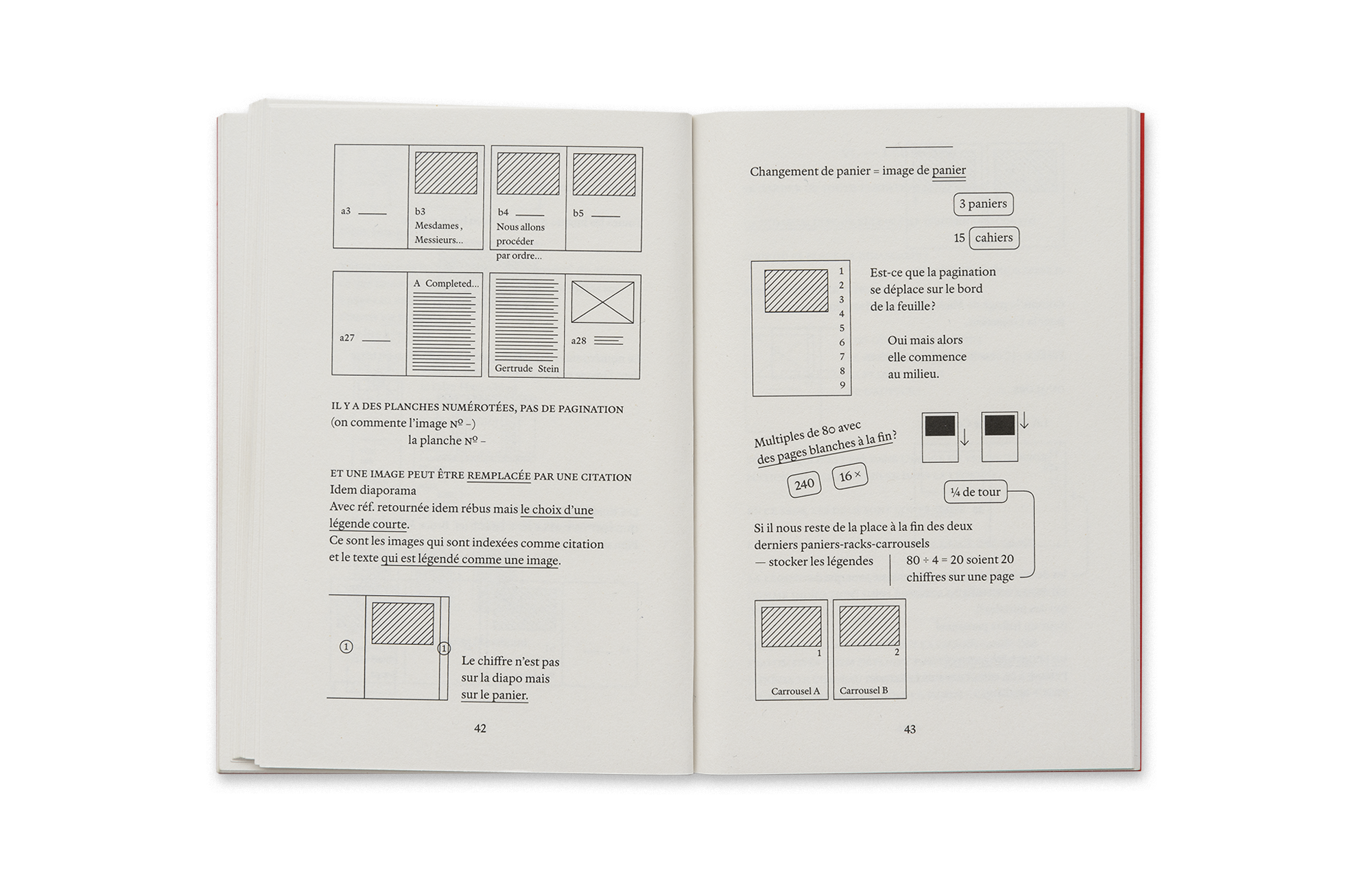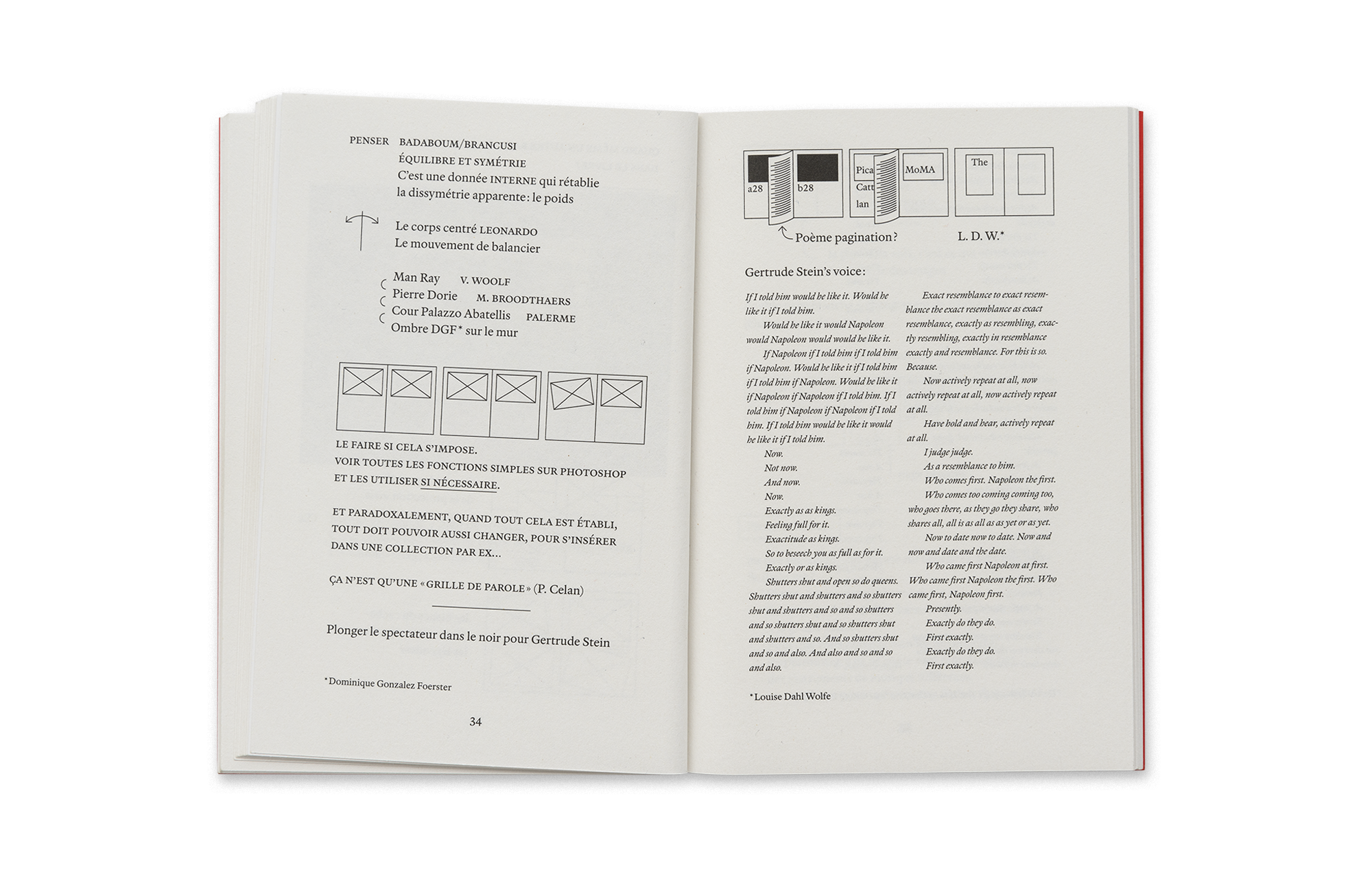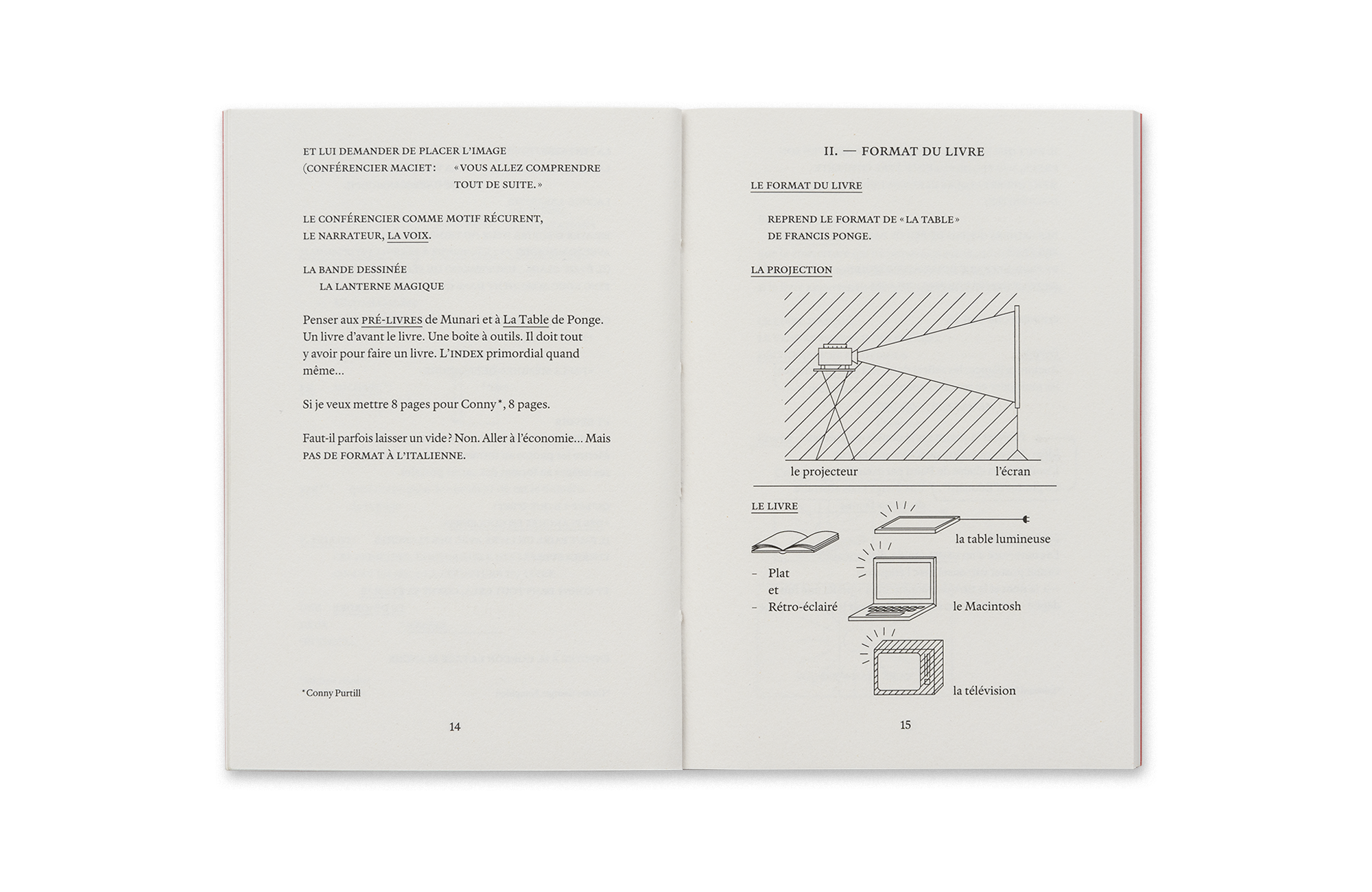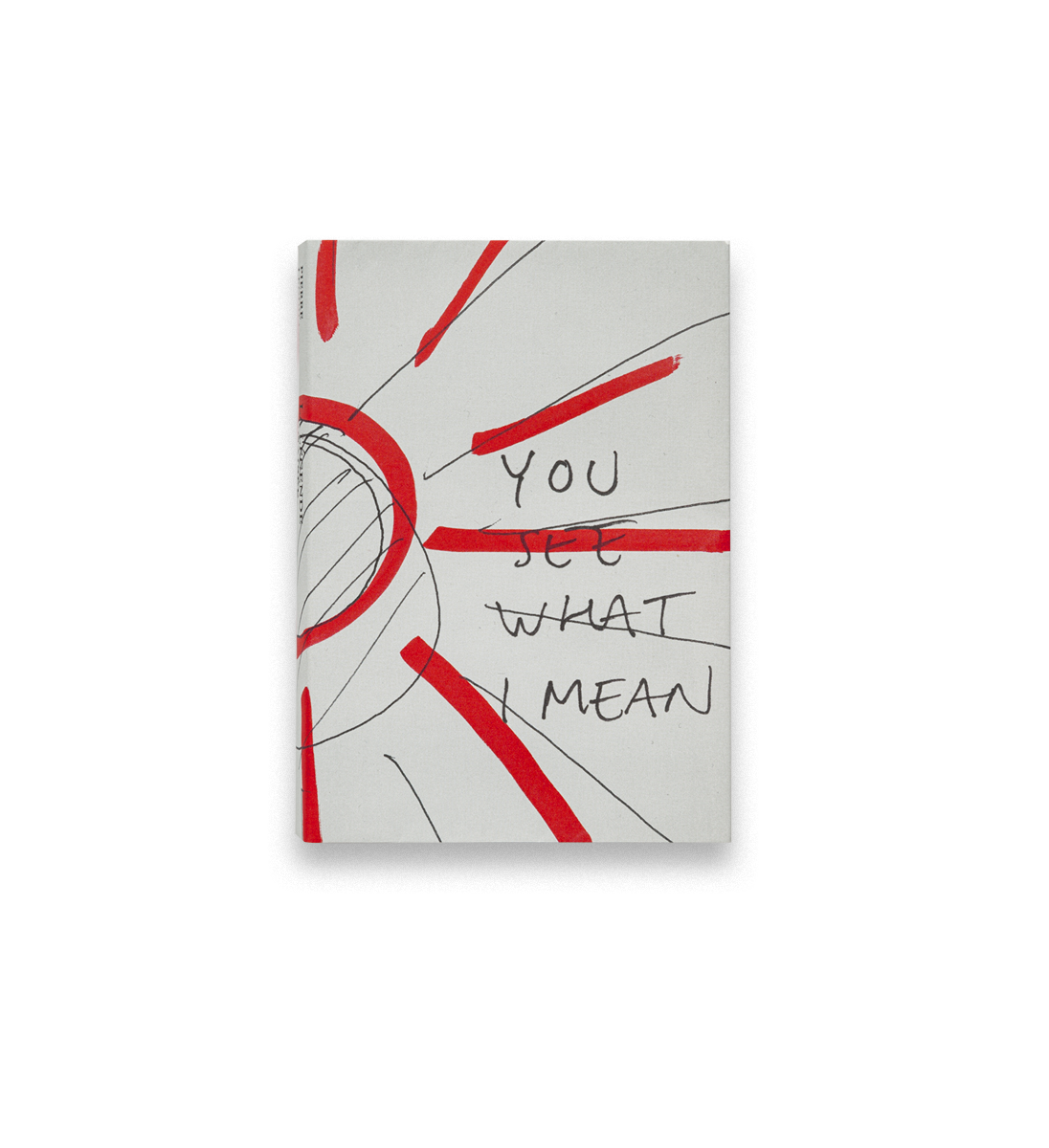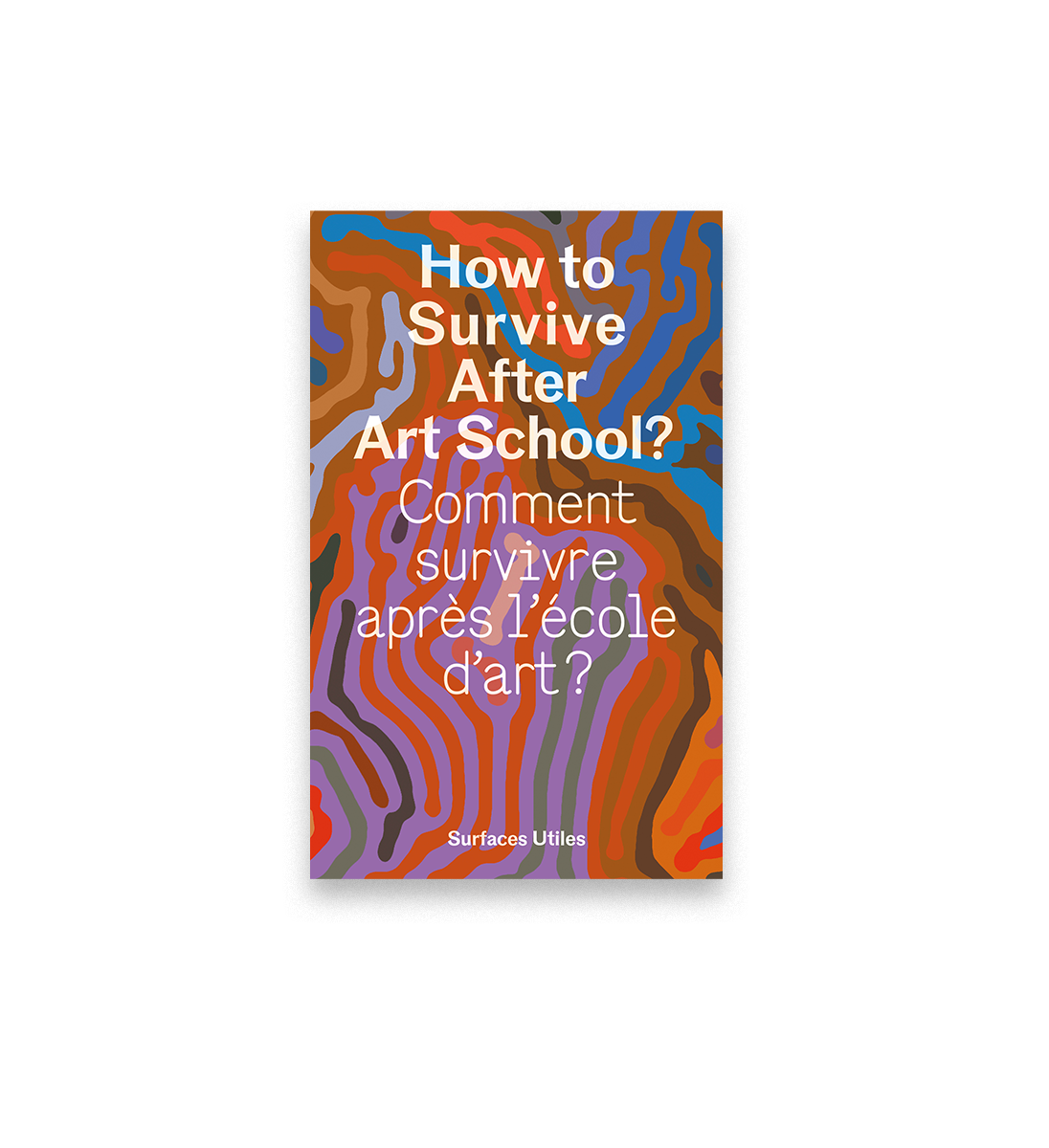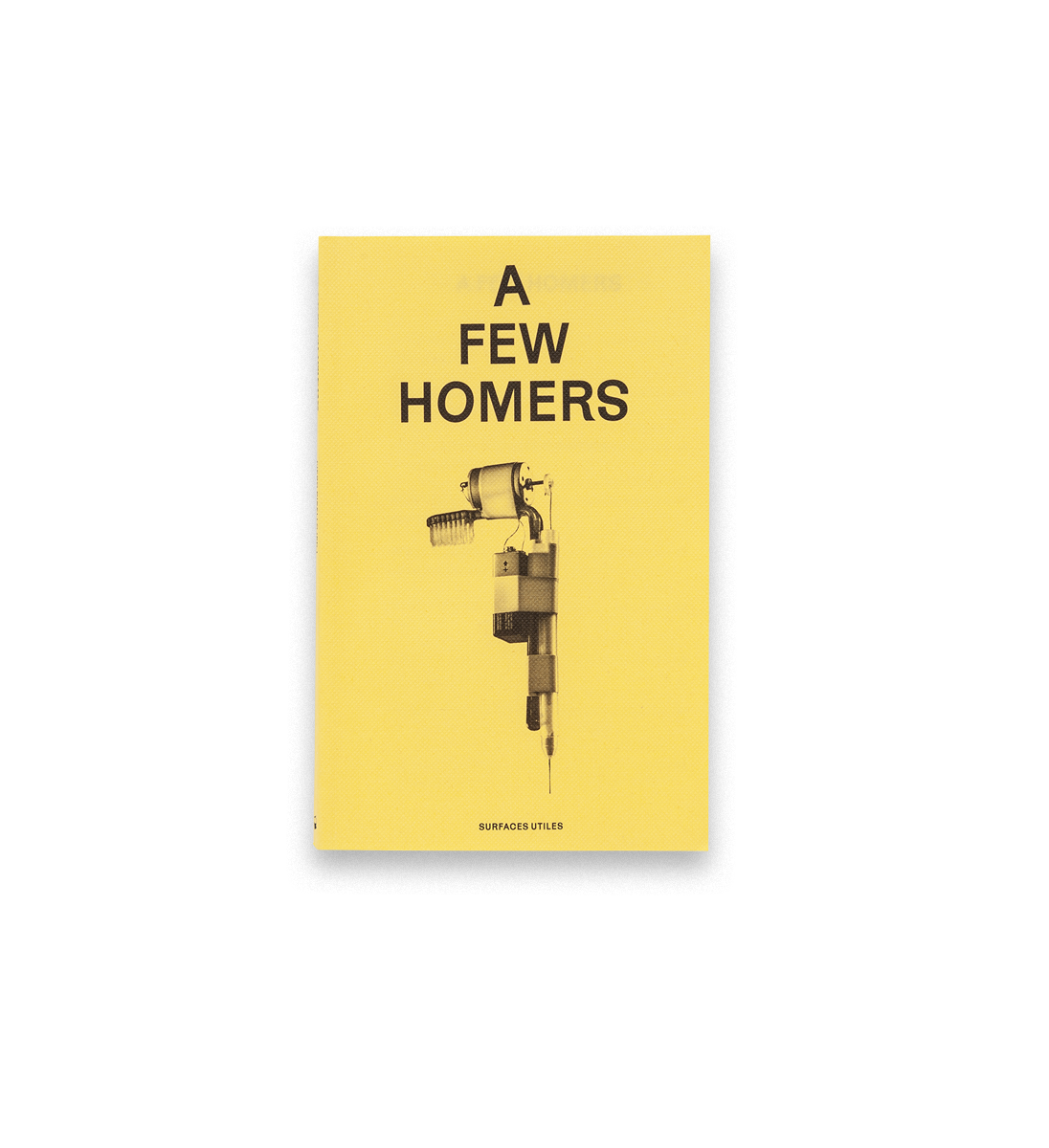La légende punaisée dans le ciel, manuel pour un livre, Pierre Leguillon
This volume contains a few transcribed notes about the making of a book. Pierre Leguillon wrote them during the winter of 2003–2004 while he was in residency at Villa Medici, the French Academy in Rome. During that winter, the artist remained cloistered in his home for a few weeks, detached. He looked for the right form for the book, which had to translate a slideshow of images and sound into the space of some pages. Leguillon was familiar with the medium of the slideshow. He had used it for the past ten years or so. Late at night or just out of bed, he would put down peremptory and seemingly conclusive formulas. He would almost always use a felt-tip pen, writing in capital letters.
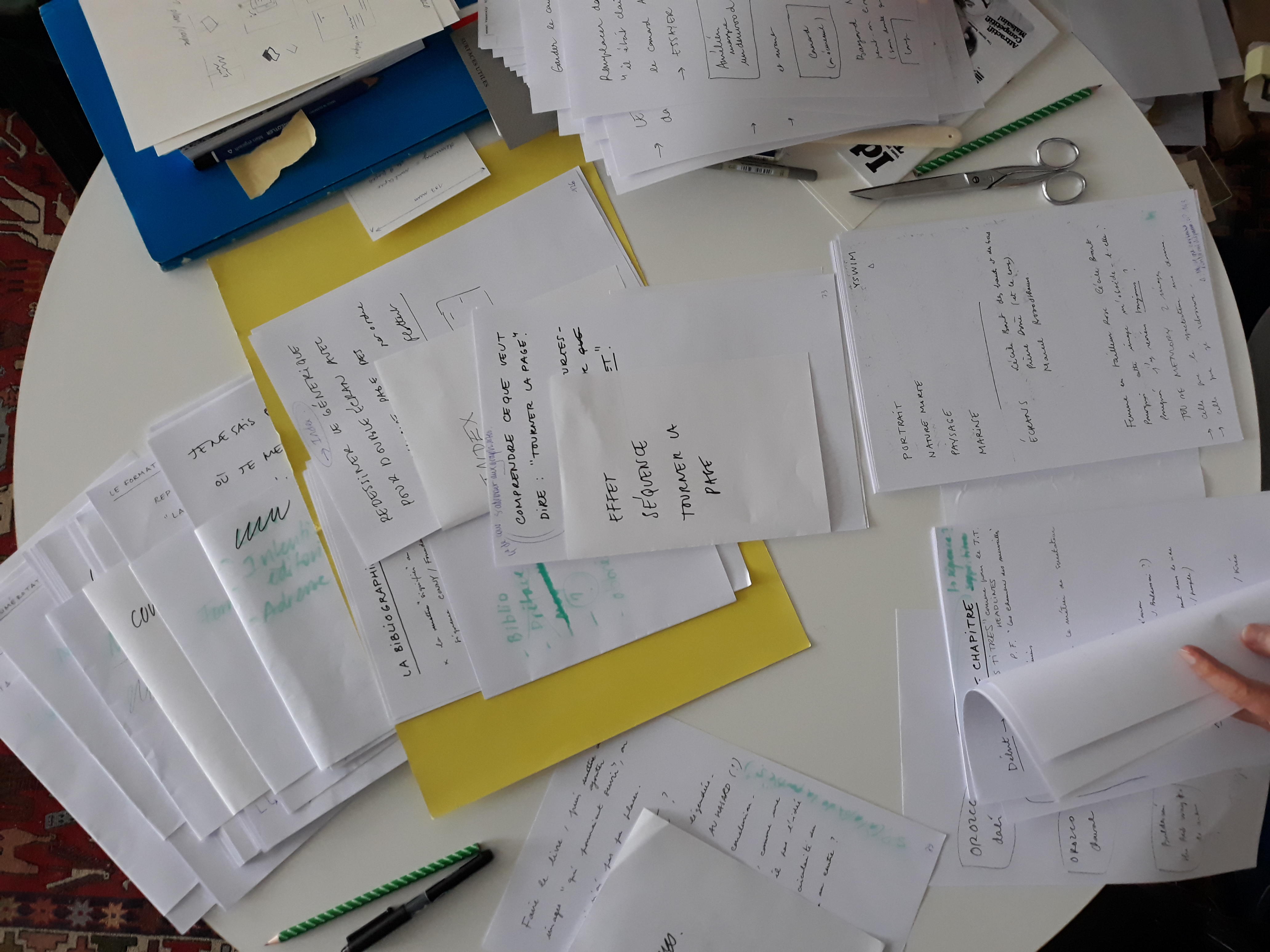
Édition du notes manuscrites en vue du Manuel pour un livre | Editing of the original manuscript for the “Manuel pour un livre”
This book has yet to see the light of day. Today we can ask ourselves if it will ever equal the conflicting ideas that came that winter. Leguillon’s notes are jumbled, reworked here so they can be shared, yet devoid of that ideal form coveted by many before him. After seventeen years of maturation, Surfaces Utiles (the publisher) and Cultura (the printer) have combined their know-how to daringly play with this unmade book.
Surfaces Utiles promotes a heterogeneity of artistic, literary and typographic practices, but also experiments with alternative economic models for the publishing industry. For example, it appropriates and diverts standardized printing. What is at hand dictates what is made. Cultura recuperated some paper that was forgotten in the warehouse; it provided two available printing techniques, offset and digital. Cultura embraced the philosophy of Surfaces Utiles and contributed to the new shape of Leguillon’s retrieved notes.
Encouraged by these opportunities, the artist, the publisher and the printer stepped in each other’s shoes and came up with two different objects: a fine replica of the original manuscript and the present volume inserted in it. The first is printed with a digital printer, on demand. The pre-orders of it determined the number of copies of the second, which is offset printed, and which also circulates autonomously, free from its parent volume.
A non-book that never came to light has finally turned into an anti-manual.
Les notes retranscrites dans ce manuel visaient la réalisation d’un livre, imaginé pendant l’hiver 2003–2004, tandis que Pierre Leguillon était résident à la Villa Médicis, l’Académie de France à Rome. Pendant quelques semaines, il est resté cloîtré chez lui, vivant de manière totalement décalée, dans l’espoir de trouver la forme que prendrait son livre.
Ce livre tentait d’adapter à l’espace de la page une projection de diapositives sonorisée, un format que l’artiste utilisait exclusivement depuis une dizaine d’années. Les formules, au ton péremptoire et au caractère définitif, étaient presque toujours rédigées au feutre et en capitales, très tard dans la nuit ou au réveil, tardif.
Ce livre n’a toujours pas vu le jour, mais égalera-t-il jamais l’entité que forment ces idées contradictoires ? Car ce fatras, remanié dans ces pages pour pouvoir être partagé, dessine en creux une forme idéale, convoitée par beaucoup d’autres avant lui.
Après donc dix-sept ans de maturation, Surfaces Utiles et Cultura, imprimeur à Wetteren en Belgique, ont combiné leurs savoir-faire pour faire exister ce «non-livre». On frôle l’héroïsme.
Si Surfaces Utiles promeut une hétérogénéité de pratiques artistiques, littéraires et typographiques, chaque nouvelle publication est aussi pour la maison d’édition l’occasion de chercher des modèles économiques alternatifs à l’industrie de l’édition, en complicité avec ses acteurs, et notamment par l’appropriation et le détournement des processus d’impressions standardisés. Ce sont les disponibilités matérielles — du papier stocké depuis parfois de longues années et deux techniques d’impression différentes, offset et numérique, que l’imprimeur Jan De Meester a mis à notre disposition en jouant le jeu de Surfaces Utiles — qui ont donc déterminé la forme de cette Légende punaisée dans le ciel.
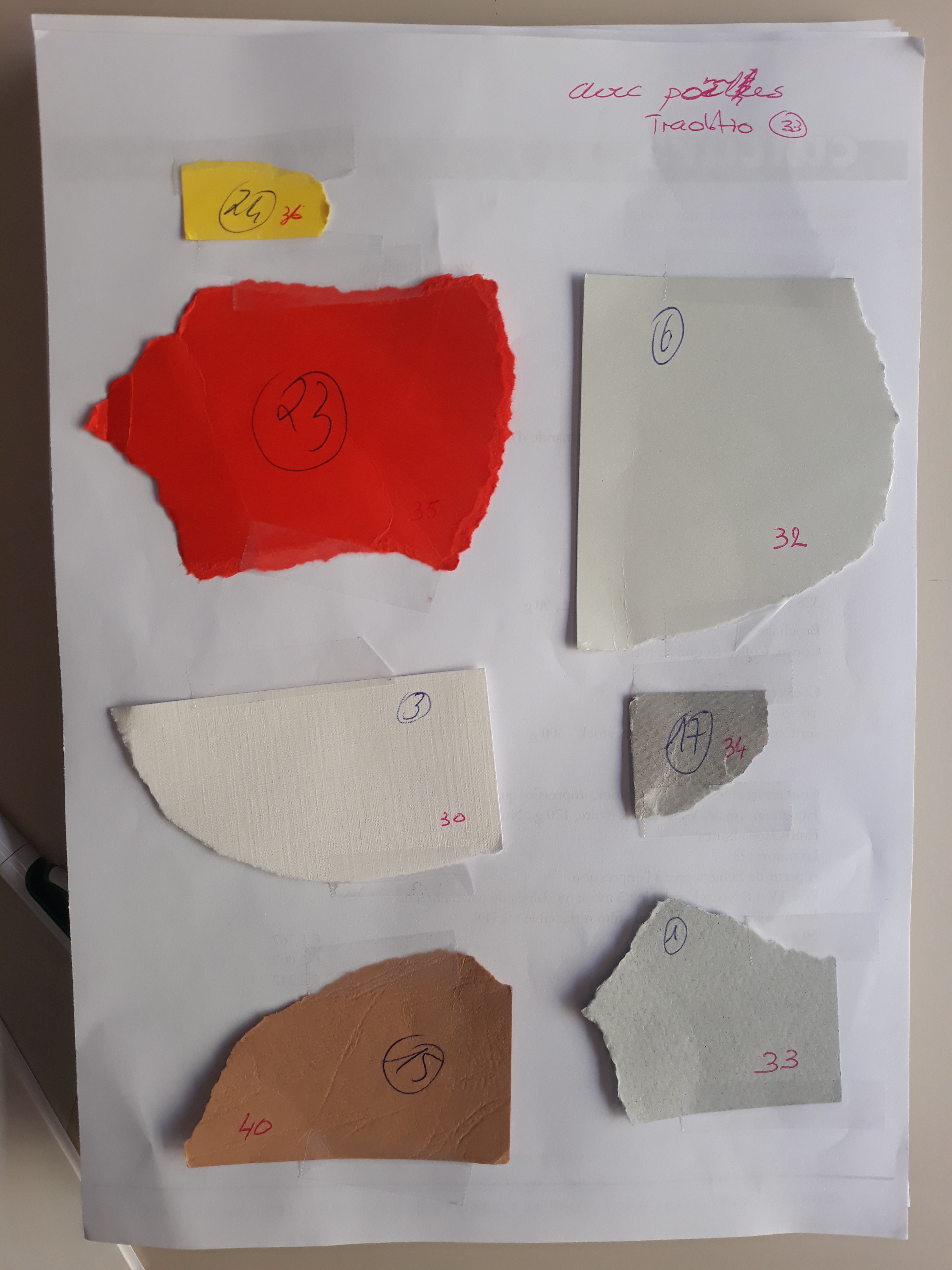
Échantillons de papier tirés du stock de l'imprimerie Cultura à Wetteren, Belgique | Paper samples taken from the print shop stock
Réunis autour de ces ressources, l’artiste, l’éditeur et l’imprimeur ont tour à tour échangé leurs casquettes pour aboutir à cette forme inédite : un livre (épais), qui reproduit le manuscrit original, au centre duquel se trouve pris en sandwich un exemplaire du Manuel pour un livre, sa version éditée. Le premier est imprimé en numérique et le nombre d’exemplaires vendus par souscription a déterminé le volume de tirage du second, imprimé lui en offset. Ce dernier circule également de manière autonome, émancipé du livre-mère.
Ou comment un « non-livre », qui n’avait jamais paru, est finalement devenu un anti-manuel.
La Légende punaisée dans le ciel,
Manuel pour un livre
Pierre Leguillon
Price
€12.00
Format
10,7 × 15,2 cm
Language
FR
Pages
68 pages (64 + 4 illustrations)
Shaping
softcover
ISBN
978-2-931110-02-7
Concept
Olivier Bertrand,
Pierre Leguillon and Jan De Meester
Typesetting
Olivier Bertrand with Emma Corbique
Proofreading
Sylvie Eyberg
Design
Olivier Bertrand
Numbered and signed edition: Manuscrit
«Une note de lecture ne saurait restituer le foisonnement intellectuel de ce manuel. Elle peut juste inviter à s’en emparer. You see what I mean?»
— CRITIQUE D’ART, Nathalie Boulouch
